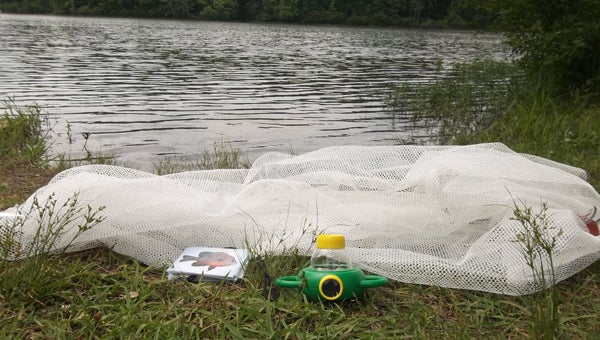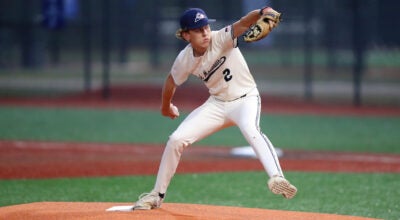Aquatic insects can help check water quality
Published 2:01 pm Friday, July 24, 2015

Macroinvertebrates, including bottom dwelling organisms like crayfish, clams, snails and insect larvae, have long been used to test the water quality of streams, lakes and ponds. (Contributed)
By EMILY D. COOK / Community Columnist
Did you know that you can tell if a lake, pond or stream is polluted by identifying and counting the different aquatic insects that you find in a small area? You can!
Here’s a simple way to check the water quality just by looking to see what critters live there. Macroinvertebrates (bottom dwelling organisms like crayfish, clams, snails and insect larvae) have long been used to test the water quality of streams, lakes and ponds.
The reason for this is that they are abundant, often slow moving and easy to collect.
The macroinvertebrates can be divided into three classes, depending on their level of pollution toleration.
Class I organisms are sensitive to pollution and includes organisms such as caddisflies, gilled snails, mayflies and riffle beetles.
They are found in good clean water. Class II organisms are somewhat sensitive to pollution and include organisms such as dragonflies, damselflies and crayfish.
They can be found in somewhat polluted water but can also be found in clean water, so just because you find them doesn’t mean the water is polluted.
If you find Class I individuals in the stream with Class II individuals, the water must be clean.
Class III organisms are tolerant of pollution and include organisms such as Water Striders, Leeches, Mosquito Larva and Pouch Snails.
These guys can survive in poor quality water but can also live in clean water.
Large numbers of organisms from Class I are a good thing in a water system but a large number from Class II or III without organisms from Class I are not.
Come out on Aug. 8 at 10 a.m. for a Lake Stomp to get a more in-depth discussion of aquatic critters, and get wet while doing it too!
Meet at the Park Office on Terrace Drive. Also be on the lookout for Creek Kids, an aquatic education program, being held in your state parks.
Please remember that you keep Alabama State Parks open by visiting them.
For more information on water quality sampling using insects, contact the Park Naturalist at (205) 620-2520 or oakmountain.naturalist@dcnr.alabama.gov.









